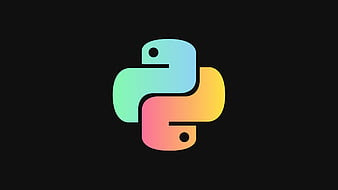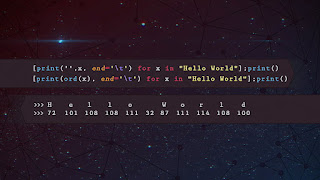Python Programming for Artificial Intelligence: A Hands-on Guide to Learn the Language
Python programming Mastering Python Essential tips and tricks Learn Python Python for beginners Python for data science Python for artificial intelligence
Introduction
Python has emerged as one of the
most popular programming languages in recent years, thanks to its simplicity,
versatility, and vast ecosystem of libraries and frameworks. Whether you are a
beginner or an experienced developer, mastering Python programming can
significantly enhance your skills and enable you to tackle complex problems
with ease. In this article, we will explore essential tips and tricks that will
help you take your Python proficiency to the next level.
Embrace Pythonic Coding: Python is well-known for its
concise and understandable syntax. To become a great Python programmer, you
must first grasp and adhere to Python's writing style, known as
"Pythonic" programming. This involves using list comprehensions,
generator expressions, context managers, and other language elements to make
your code more compact and expressive. Embrace the Pythonic coding style to
create appealing and effective solutions.
Leverage Python's Standard Library: Python's standard library is a
treasure trove of pre-built modules and packages that cover a wide range of
functionalities. By familiarizing yourself with the standard library, you can
save time and effort by utilizing existing modules instead of reinventing the
wheel. Explore modules like ‘collections’, ‘datetime’, ‘os’,
‘json’, and ‘random’ to enhance your programming capabilities.
Understand Python's Data Structures: Python offers powerful built-in
data structures like lists, dictionaries, sets, and tuples. Mastering these
data structures is essential for efficient Python programming. Understand their
characteristics, performance trade-offs, and when to use each one. Additionally,
explore advanced data structures like queues, stacks, and heaps available in
Python libraries such as ‘collections and ‘heapq’ for solving
specific problems.
Become Proficient in List Comprehensions and
Generators: List comprehensions and generators
are concise and efficient ways to create lists and generate values on-the-fly,
respectively. These constructs allow you to write expressive one-liners,
eliminating the need for traditional loops in many cases. Practice using list
comprehensions and generators to transform and filter data efficiently.
Harness the Power of Decorators: Decorators are a unique feature
in Python that allows you to modify the behavior of functions or classes
dynamically. They are invaluable for implementing cross-cutting concerns such
as logging, timing, and caching. Learn how to write and use decorators to
enhance the functionality and reusability of your code.
Dive into Object-Oriented Programming (OOP): Python is an object-oriented
programming language, and understanding OOP concepts is essential for writing
modular and maintainable code. Learn about classes, objects, inheritance,
polymorphism, and other OOP principles. Utilize OOP techniques to organize your
code logically and create reusable and extensible software components.
Explore Python Frameworks: Python has a plethora of frameworks that cater to various domains, including web
development (Django, Flask), scientific computing (NumPy, SciPy), data analysis
(Pandas), and machine learning (TensorFlow, PyTorch). Explore and work with
these frameworks to leverage their capabilities and accelerate your development
process.
Embrace Testing and Debugging: Mastering Python programming
involves becoming proficient in testing and debugging techniques. Write unit
tests using the ‘unittest’ or ‘pytest’ frameworks to ensure the
correctness of your code. Learn how to use debuggers and logging effectively to
identify and fix issues efficiently.
Stay Updated with Python Ecosystem: The Python ecosystem is dynamic,
with new libraries, tools, and best practices emerging regularly. Stay up to
date with the latest developments by following Python-related blogs, forums,
and communities. Explore new libraries that can simplify your tasks or improve
your code's performance.
Practice, Practice, Practice: Lastly, practice is the key to
mastering any skill, and Python programming is no exception. Solve coding
challenges, participate in coding competitions, and work on personal projects
to apply your knowledge and improve your problem-solving abilities. Consistent
practice will help you internalize the concepts and become a proficient Python
programmer.
Conclusion
Mastering Python programming
requires a combination of understanding the language's fundamentals, leveraging
its vast ecosystem, and adopting best practices. By embracing Pythonic coding,
exploring the standard library, honing your data structure skills, and diving
into OOP, you'll be well on your way to becoming a Python master. Remember to
stay updated with the latest trends and practice regularly. With determination
and dedication, you'll be equipped to tackle complex problems and build
impressive Python applications. Happy coding!




Comments
Post a Comment